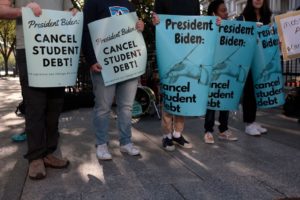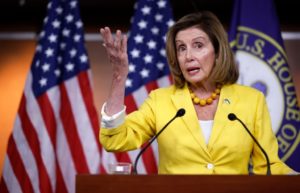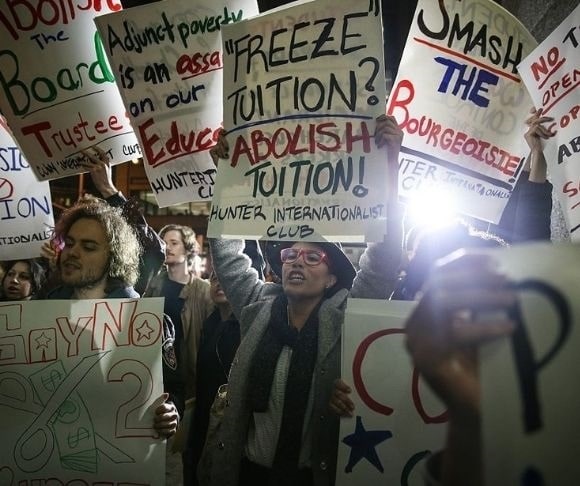The White House might have believed President Joe Biden’s student loan forgiveness was a knockout blow for the Republican Party ahead of the mid-term elections. In reality, the administration’s debt cancelation measure turned into nothing more than a wealth transfer boondoggle that could potentially upset more people than it helps. But no matter how the higher-education public policy objective is described, this was – in baseball terms – a foul ball that was caught by a couple of drunken teenagers sitting in the bleachers.
Student Loan Forgiveness Numbers
 The White House and its advocates in the mainstream media have been coy about the cost of this program. Administration officials warned that it might trim the deficit reduction initiative, while left-leaning talking heads seem to believe the funds will grow on a magical tree at 1600 Pennsylvania Avenue. Some shriek to the heavens about PPP loans and tax cuts! In recent weeks, organizations have presented their forecasts, which are not exactly bullish.
The White House and its advocates in the mainstream media have been coy about the cost of this program. Administration officials warned that it might trim the deficit reduction initiative, while left-leaning talking heads seem to believe the funds will grow on a magical tree at 1600 Pennsylvania Avenue. Some shriek to the heavens about PPP loans and tax cuts! In recent weeks, organizations have presented their forecasts, which are not exactly bullish.
The Penn Wharton Budget Model, a non-partisan group at the University of Pennsylvania’s Wharton School, estimated that forgiving student loan debt may cost at least $300 billion over the next decade. But the dollar figure could spike to $900 billion if the federal government abandoned income limits.
A National Taxpayers Union (NTU) report projected that taxpayers would ultimately cover the tab. The fiscal conservative advocacy entity expects the plan to result in an average burden of $2,500 per taxpayer. “There’s a transfer of wealth from the society at large to people who borrowed to go to college right now,” said Andrew Lautz, director of federal policy at the National Taxpayers Union. “That has consequences for consumers. It has consequences for taxpayers.”
Others purport that eliminating $10,000 to $20,000 in student loan debt could add to inflation pressures. “I hope the Administration does not contribute to inflation macro economically by offering unreasonably generous student loan relief or micro economically by encouraging college tuition increases,” tweeted former Treasury Secretary Larry Summers.
Even if all the president’s men dismiss these numbers and move ahead with the campaign, the legislative pursuits might slam into the ivy-covered wall at Wrigley Field.
Will the GOP Cancel the Cancelation?

(Photo by Anna Moneymaker/Getty Images)
Republicans have taken Biden’s efforts to the woodshed, arguing that it is unfair to the millions of low- and middle-income Americans who never attended a post-secondary institution and received a degree in Gender Studies. While strategists may contend that this is the wrong tactic, the GOP could ultimately block the Oval Office’s higher-education public policy objective.
Indiana, Mississippi, and North Carolina decided to slap state taxes on federal student loan forgiveness. Other jurisdictions have refrained from announcing an official decision. Indeed, 37 states have opted to conform to the federal tax system, leaving a dozen or so states the autonomy and power to penalize forgiveness funds.
Speaking in a recent interview with CNBC, Arizona Attorney General Mark Brnovich averred that any celebration might be too premature. The Republican attorney general noted that he and his colleagues are mulling over a legal challenge. “I think there’s a lot of people celebrating prematurely. A lot of other people are very upset about this, not only because of legal arguments, but because they believe it’s fundamentally unfair,” he said, adding that it is essential to file a lawsuit “sooner rather than later.”

Nancy Pelosi (Photo by Chip Somodevilla/Getty Images)
The constitutional component has also been called into question. Critics assert that the administration does not possess the legal authority to eradicate billions in student loan debt unilaterally. This is something House Speaker Nancy Pelosi (D-CA) even alluded to earlier this year. However, the White House declared that the action would be appropriate under the Heroes Act of 2003, which gives the president power to alter student loan programs. Some dispute this notion.
Activist Media Goes Silent
The mainstream media has gone silent on this issue. Perhaps the pundits and reporters have learned that there is not a consensus of support in the nation. Instead, according to an August CNBC survey, 30% reported that there should be no student loan forgiveness, 34% think only those in need should have loans forgiven, and 32% approve of student loan forgiveness for all. Maybe they, as John Adams famously uttered, discovered that “facts are stubborn things” – and this plan is absent of facts. But the left has adopted Rep. Alexandria Ocasio-Cortez’s (D-NY) earnest philosophy of being morally rather than factually correct. Unfortunately for leftists, much of the voting public does not endorse this principle.




